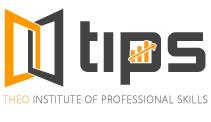To clear any financial course is an intimidating challenge in itself and to clear it in first attempt is a quite remarkable achievement which means it requires great amount of hard work. Although there is no secret trick involved, but an organized, regiment approach will help you clear any level of financial course in first attempt. Below are the tips which we think you must keep in mind in order to effectively prepare yourself for your financial exams.
-
Believe in yourself
Believe in yourself that you can achieve and everything else comes next. Financial courses are not tough as they appear to be. Any financial course usually requires 80% hard work and 20% intelligence. So if you can work smart you can do it, as simple as that.
“Believe it can be done. When you believe something can be done, really believe, your mind will find the ways to do it. Believing a solution paves the way to solution.” – David J. Schwartz, The Magic of Thinking Big.
-
Analyze the structure of paper
Go through the structure of paper – is there any marks allocation for a particular topic? If yes, how much? How much time do I need to spend on this topic to secure full marks? Reviewing all the past five papers- what is the key topic? Is there any article by examiner in any relevant student magazine? Analyze it in your own style; the point is to make yourself familiar with the paper pattern so you’re well prepared for any upcoming or unseen challenge.
-
Memorizing key ideas and formulae
No matter which financial course you’re preparing for we’re pretty sure there will be plenty of formulas/key ideas in it. So it’s better to come up with a proper strategy beforehand so you can easily memorize all of them. The best way to memorize anything is to understand it first, If you understand how a formula is devised, it is much easier to know when to use each formula. Do not attempt to learn reams of formula without understanding the meaning behind them. This will only increase the amount of time it takes to learn, and probably creates confusion. If you don’t understand it, your mind will not be able to create any links between them as a result you’ll forget everything during test.
-
Test yourself
Testing your self is essential to know your strengths and weaknesses. The best way to do that is to by being your own examiner: select any past paper and solve it as a mock exam. However it is important to solve the past paper in the official allotted timeframe (imagine yourself in examination hall and treat it accordingly).
Once you have tested yourself comes the real part: An honest evaluation and without being hopeless, (incase the mock didn’t turn to be good) working on your weaknesses.
“Students who can test themselves or try to retrieve material from their memory are going to learn that material better in the long run” – Prof John Dunlovksy
-
Revision is everything
Believe us when we say revision is everything: we mean it! There are endless advantages of revision.
If you revise properly you can gauge your understanding level, make links between different topics to understand how the whole subject fits together, remind yourself of material you might have forgotten, and reinforce your learning. If you don’t have enough motivation for revision then please don’t waste your time and money.
End note
If you’re appearing in any financial exam or planning to register in one, you need to understand that in order to succeed you need to plan. If you organize your material properly, study efficiently and effectively and review your material time to time. We guarantee it that you can clear any financial course in first attempt. If you need any further guidance or advice please feel free to contact us.
